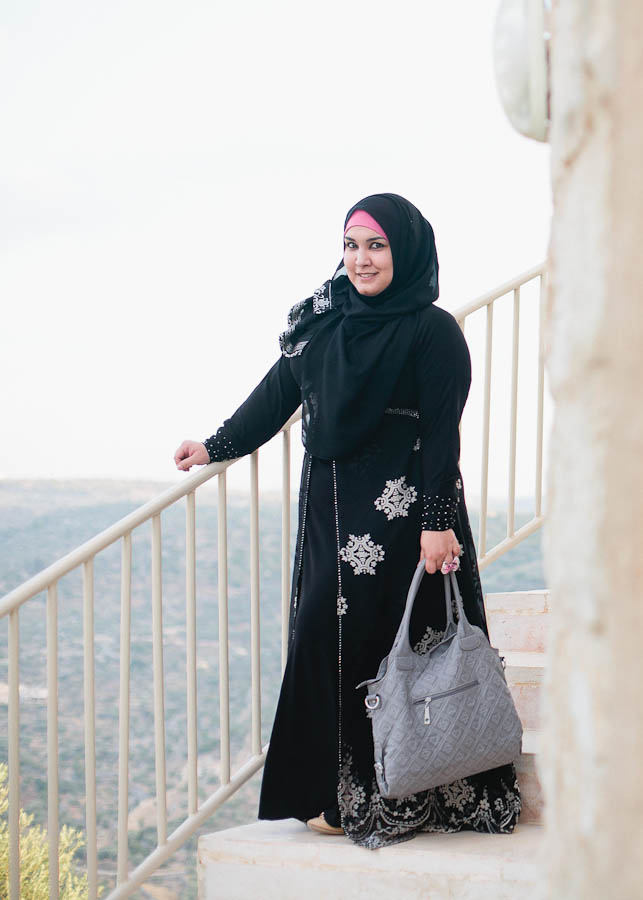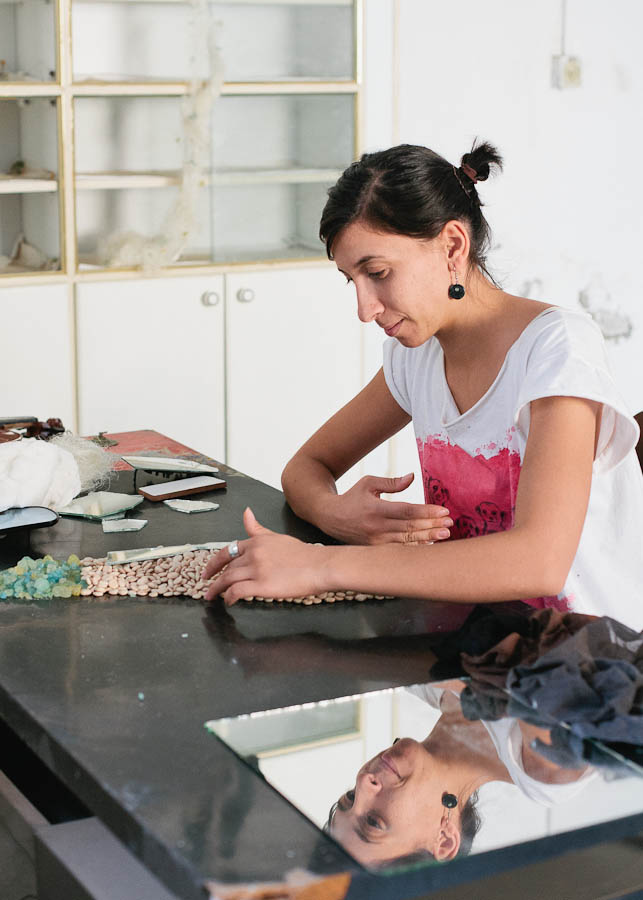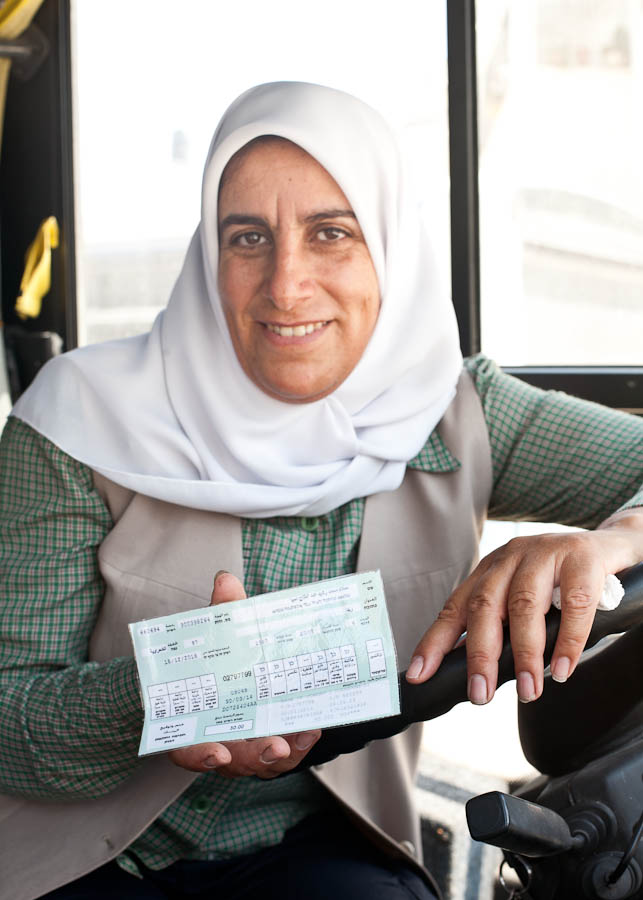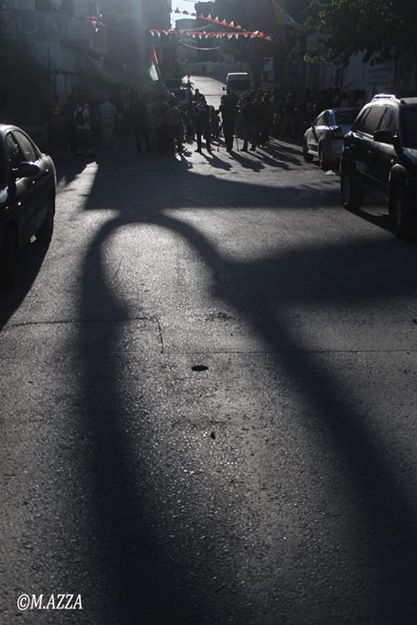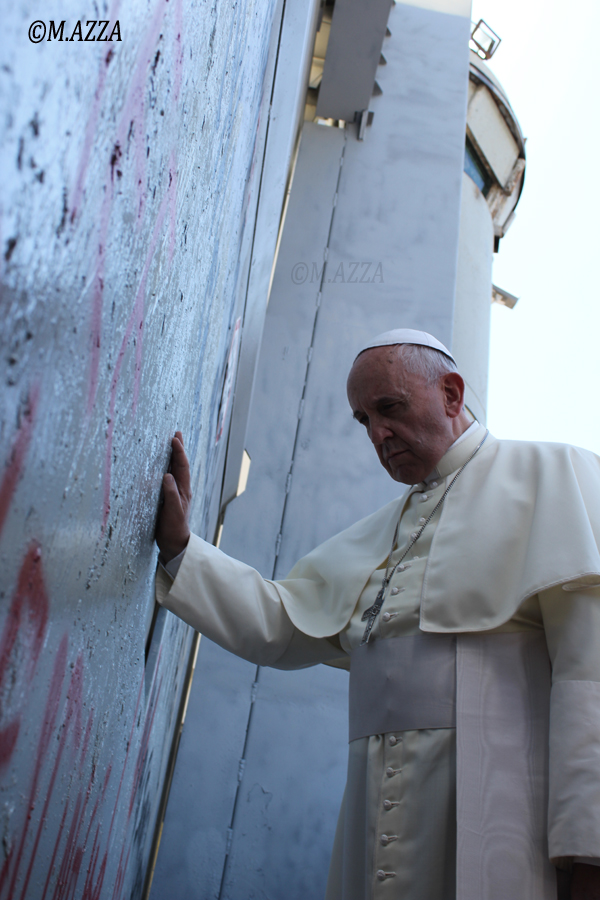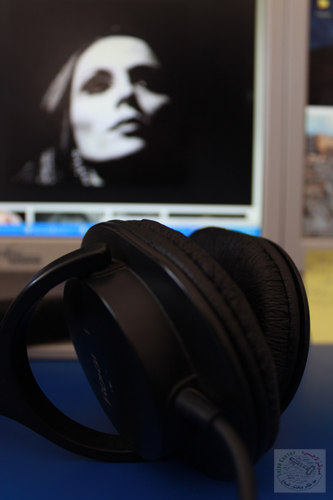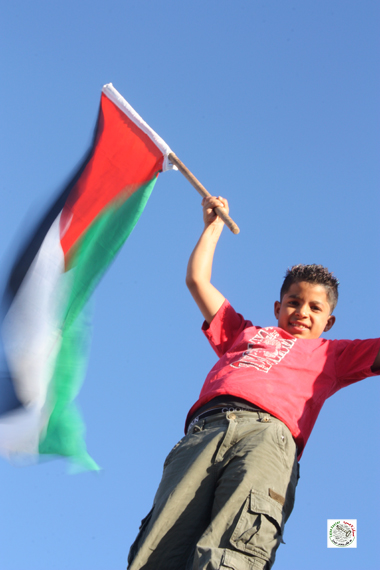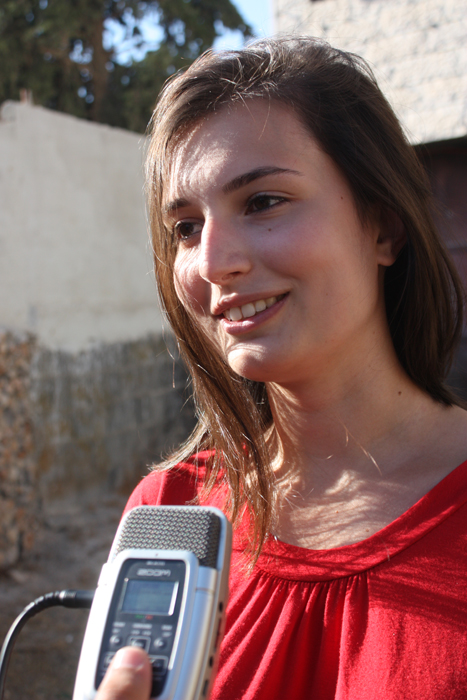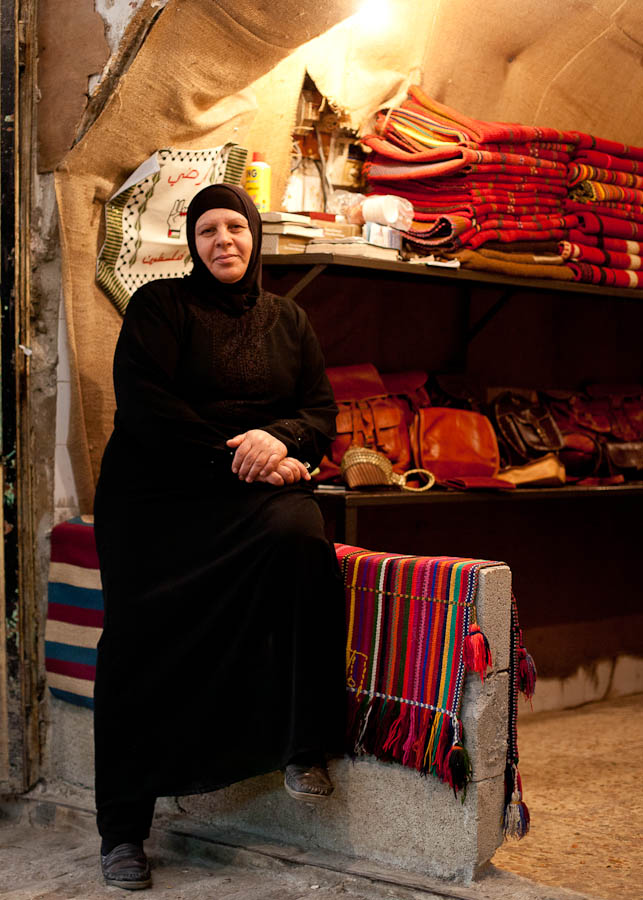
This podcast is the fourth in a series of six that will feature interviews with Palestinian women. Each woman featured in this series was photographed and interviewed. The purpose of this project was to demonstrate our (the artist’s) belief that every individual has an important purpose in society and this is a reason for them to be celebrated.
Laila is the only woman shopkeeper in the old city of Hebron. Along with her sister Nawal, Laila founded the Women in Hebron embroidery and crafts cooperative. Approximately 120 women work on the products in their homes or at the community center in a nearby town. Laila’s job is to be in the old city every day to sell these products. Local tour guides know Laila very well and they frequently bring their groups to stop at her shop and hear the story of Women in Hebron.
Story and photo credit : Katy Carlson
Voice by : Amani Asad
Editing : Emma Soerensen, Mohammad Alazza

